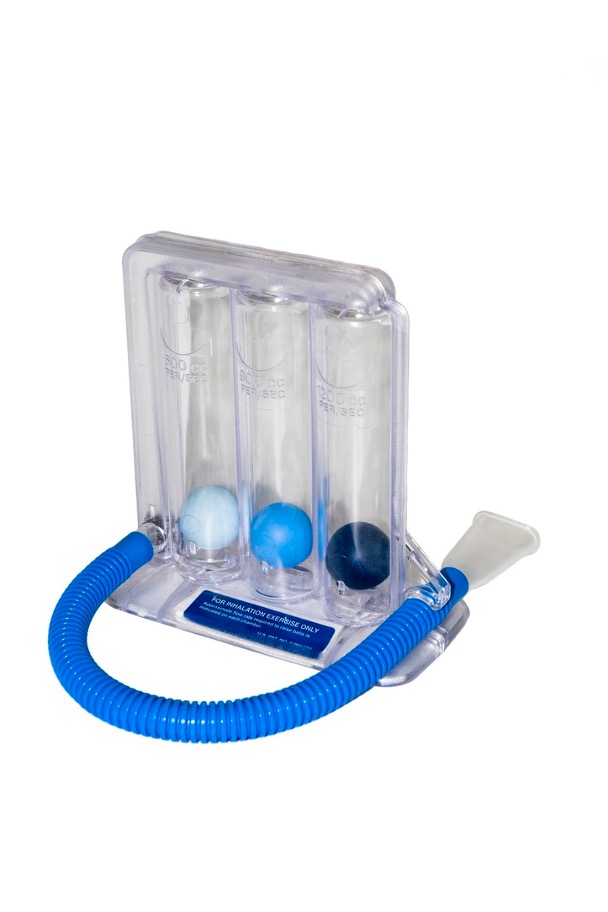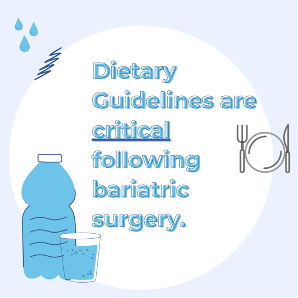Bariatric Surgery: Post-Op Considerations
Contact Hours: 2
Author(s):
Edith Fomuso MSN RN CCM DPM
Course Highlights
- In this Bariatric Surgery: Post-Op Considerations course, we will learn about post-op considerations for bariatric surgery.
- You’ll also learn evidence-based interventions to promote healing and recovery after bariatric surgery.
- You’ll leave this course with a broader understanding of creating tailored care plans and follow-up care to promote long-term success and well-being.
Introduction
Obesity has become a serious public health concern in the United States, with profound implications for individual health and the healthcare system (8). It is associated with many comorbidities, including hypertension, diabetes, cardiovascular disease, and some types of cancer.
For example, individuals with obesity have a higher risk of developing type 2 diabetes, which can lead to complications like neuropathy, retinopathy, and cardiovascular issues (8). Bariatric surgery has become an effective treatment option for those struggling with severe obesity when other interventions, such as lifestyle changes and medications, have proven ineffective (1).
The increasing prevalence of obesity and the promising outcomes associated with bariatric surgery necessitate the need for nurses to continuously improve their help patients achieve optimal healing, recovery, and overall success. This course is designed to equip nurses with the knowledge and skills necessary to provide comprehensive care and support to patients after bariatric surgery.
Ask yourself...
- What is the purpose of this course?
- Why do you think bariatric surgery has emerged as an intervention in addressing the growing obesity epidemic?
- How can healthcare professionals, including nurses, help address the challenges caused by the increasing prevalence of obesity and the need for bariatric surgery?
Epidemiology of Obesity
Obesity has reached epidemic proportions in the United States, affecting individuals of all ages and ethnic backgrounds. Recent epidemiological data reveal the staggering scale of this issue. According to the Centers for Disease Control and Prevention (CDC), more than 42% of American adults were classified as obese in 2020 (8). This statistic highlights a significant increase from previous years and underscores the urgent need for effective interventions.
Additionally, childhood obesity rates remain a concern, with approximately 19.3% of children and adolescents aged 2-19 years obese (8). The consequences of obesity are far-reaching, as it is a significant risk factor for a range of health issues, including type 2 diabetes, heart disease, and sleep apnea (8).
Ask yourself...
- What factors do you think contribute to the substantial increase in obesity rates among American adults?
- Considering the high prevalence of childhood obesity mentioned, what strategies or interventions do you believe healthcare professionals and communities can implement to address and prevent obesity among children and adolescents more effectively?
- What are some consequences of obesity?
Etiology/Causes
Obesity is a complex condition with multifactorial causes. Understanding its etiology is crucial for healthcare professionals, including those in bariatric surgery. The primary drivers of obesity include genetics, environmental factors, and lifestyle choices. We will review the details below.
- Genetic predisposition plays a significant role, as specific genetic variants like those in the Fat Mass and Obesity-Associated Gene (FTO), the Melanocortin 4 Receptor Gene (MC4R), and the Leptin Gene (LEP) can increase an individual’s susceptibility to obesity (10).
- Environmental factors such as the consumption of high-calorie, low-nutrient foods and sedentary lifestyles also contribute to obesity rates (10).
- Lastly, psychological factors like stress and emotional eating can exacerbate weight gain (10).
For example, a patient who has genetic susceptibility to obesity and a stressful work environment could develop obesity if they turn to comfort eating and a sedentary lifestyle. Understanding the causes of obesity is essential for healthcare professionals to provide appropriate care and guidance to patients undergoing bariatric surgery.
Ask yourself...
- How do genetic and environmental factors contribute to obesity, and how can this understanding inform patient care and prevention efforts?
- What role does psychological well-being play in the etiology of obesity, and how can healthcare providers address emotional factors in patients seeking bariatric surgery?
Types of Bariatric Procedures
Bariatric surgery encompasses various procedures, each with its unique mechanisms and outcomes. Two commonly performed types are gastric bypass surgery and sleeve gastrectomy.
- Gastric bypass surgery: involves creating a small pouch from the stomach and rerouting the small intestine to reduce food absorption (1).
- Gastrectomy involves removing a portion of the stomach, leaving a sleeve-shaped structure that restricts food intake (1).
The listed procedures have distinct benefits and risks. For example, gastric bypass often results in more significant and rapid weight loss but may require more extensive lifestyle changes due to nutrient malabsorption. Sleeve gastrectomy is less invasive but may have a lower overall weight loss outcome.
Nurses need to be well-versed in these procedures and their implications to guide patients effectively in their decision-making process and provide optimal post-operative care.

Ask yourself...
- What are the key differences between the listed bariatric surgical procedures, and how should healthcare professionals guide patients in choosing the most appropriate option for their unique needs?
- What considerations should nurses consider when caring for patients undergoing these procedures?
Expected Side Effects
Bariatric surgery is associated with various expected side effects, and nurses play an essential role in managing these effects. Some examples include the following.
- Dumping syndrome can occur after gastric bypass surgery. This involves symptoms like nausea, abdominal cramps, and diarrhea when sugary or high-fat foods are consumed (1).
- Rapid weight loss, leading to excess skin that may require surgical removal or other interventions (15).
- Nutrient deficiencies due to altered absorption after bariatric surgery necessitate long-term supplementation (14).
Nurses must educate patients about these expected side effects, monitor their progress, and collaborate with other healthcare providers to manage complications, ensuring the best possible outcomes for bariatric surgery patients.
Ask yourself...
- How can healthcare providers balance the benefits of rapid weight loss after bariatric surgery with the potential side effects that may arise?
- What strategies can nurses employ to educate patients about the expected side effects of bariatric surgery and help them proactively manage these issues during their recovery?
Post-Op Nursing Interventions
Nursing interventions in the post-operative period following bariatric surgery are critical to a patient’s well-being and positive outcomes.
Pain Management
Effective pain management is one of the paramount responsibilities of nurses after bariatric surgery. Patients may experience varying levels of pain and discomfort. To illustrate, consider a scenario where a patient who has undergone gastric bypass surgery reports moderate incisional pain. In such cases, nurses should assess the pain using validated pain scales, like the Numeric Rating Scale (NRS), and administer appropriate pain medications as prescribed (1). This may include opioid or non-opioid analgesics, with careful monitoring for side effects and potential opioid-related complications such as respiratory depression.
Additionally, non-pharmacological pain management techniques, such as guided imagery or relaxation exercises, can augment pain relief strategies and improve patient comfort (11).
VTE Prophylaxis
Venous thromboembolism (VTE) is a significant concern following bariatric surgery due to immobility and blood flow alterations. Nurses play a pivotal role in VTE prophylaxis. For instance, in the case of a patient who has undergone a sleeve gastrectomy, nurses can initiate and closely monitor the use of mechanical prophylaxis devices, such as sequential compression devices (SCDs), to promote venous return and reduce the risk of deep vein thrombosis (DVT) (18).
Additionally, pharmacological prophylaxis, such as low molecular weight heparin (LMWH), may be prescribed based on the patient’s risk factors and the surgeon’s recommendations. Nurses must educate patients about early ambulation, ankle pumps, and calf muscle exercises to minimize VTE risk (18).
Incentive Spirometer Use
After bariatric surgery, patients are at an increased risk of developing respiratory complications due to reduced lung expansion during surgery and limited mobility in the immediate postoperative period. Nurses should educate patients on using incentive spirometers to promote lung function and prevent atelectasis.
For instance, a patient who has undergone laparoscopic adjustable gastric banding should be taught how to use an incentive spirometer effectively. Nurses can demonstrate the correct technique and encourage patients to use it regularly. Proper documentation of incentive spirometer use and monitoring of respiratory status are essential components of post-operative care (2).

Ambulation/Exercise
Promoting early ambulation and encouraging light exercise is vital for preventing complications, such as deep vein thrombosis, and aiding recovery. Consider a patient who has undergone gastric bypass surgery. Nurses should assess the patient’s readiness for ambulation, provide appropriate support, and guide the patient in performing safe and practical exercises.
Early ambulation, even within the first few hours after surgery, can help prevent complications associated with immobility and improve circulation. Nurses should also emphasize the importance of gradually increasing physical activity levels over time to enhance patient endurance and overall well-being (3).

Nausea/Vomiting Relief
Nausea and vomiting are common post-operative complications in bariatric surgery patients. After a patient undergoes gastric bypass surgery, nurses can employ several evidence-based interventions, including hydration, ginger, and prescribed antiemetic medications like ondansetron to alleviate nausea (12).
Additionally, giving patients small sips of clear fluids, gradually advancing to a clear liquid diet, and encouraging patients to take small, slow bites when they start eating regular food can minimize the risk of nausea by preventing overeating or food intolerance (12).
Lastly, close monitoring of vital signs, intake, and output is essential, and nurses should promptly report any signs of dehydration or persistent vomiting to the healthcare team to ensure timely intervention (12).
Wound/Incision Care
Proper wound and incision care is crucial to prevent infection and promote healing in bariatric surgery patients. Nurses should assess the incision site regularly for signs of infection, such as redness, swelling, warmth, or purulent drainage. The incision should be kept clean and dry, and sterile dressings should be applied.
Nurses must educate patients on proper wound care, including hand hygiene before touching the incision and avoiding scrubbing or excessive moisture. Furthermore, sutures or staple removal should occur according to the surgeon’s instructions, with careful attention to the sterile technique to prevent complications (17). By providing diligent wound care and monitoring, nurses can help minimize the risk of infection and ensure that the incision site heals properly (17).
Constipation
Constipation is a common issue following bariatric surgery due to dietary changes, reduced food intake, and alterations in gut anatomy. Nurses should actively address constipation by educating patients about nutritional modifications, such as increasing fiber intake and ensuring adequate hydration, to promote regular bowel movements.
Stool softeners or laxatives can also be utilized to relieve constipation when prescribed by the healthcare provider. Furthermore, encouraging early ambulation and physical activity can aid in bowel motility. Nurses should closely monitor bowel movements and provide ongoing support and education to help patients manage constipation effectively and prevent associated discomfort (13).
Ask yourself...
- What are some challenges in providing effective pain management for post-bariatric surgery patients?
- How can nurses balance addressing nausea and vomiting while ensuring patients adhere to their dietary restrictions and recommendations?
- What are the critical steps in proper wound and incision care post-bariatric surgery, and how can nurses ensure patient compliance with these guidelines?
- What are the most effective strategies for preventing venous thromboembolism in bariatric surgery patients, and how can nurses ensure patient compliance with these measures?
Dietary Guidelines
Post-operative dietary guidelines are essential for patients who have undergone bariatric surgery.
Consider a scenario in which a patient has had a laparoscopic sleeve gastrectomy. In this case, nurses need to provide clear and individualized dietary instructions to promote successful weight loss and minimize complications. Initially, the patient will follow a liquid diet for a specified period.
The nurse’s role is to educate the patient about the importance of adhering to this phase and avoiding solid foods to prevent irritation to the surgical site and potential complications such as vomiting or leakage (16). As the patient progresses, they will transition to a pureed and soft food diet.
Nurses should ensure that patients understand the gradual progression and the necessity of chewing thoroughly to prevent digestive discomfort. Later, the patient will transition to a regular diet with lifelong restrictions on portions and specific foods, such as those high in sugar or fat (16).

Ask yourself...
- How can nurses tailor dietary guidelines to meet the specific nutritional needs of post-bariatric surgery patients?
- What strategies can nurses employ to help patients overcome challenges related to dietary adherence?
Follow-up Guidelines
Post-operative follow-up is crucial in bariatric surgery to monitor patient progress, assess for complications, and provide ongoing education and support. Nurses should ensure that patients attend scheduled follow-up appointments, which are typically frequent in the first year after surgery and less frequent, but still regular, thereafter. During these visits, nurses assess patients for weight loss progress, nutritional deficiencies, and any emerging complications (6).
Nurses also play a vital role in reinforcing dietary and lifestyle changes, addressing patient concerns, and referring patients to additional resources such as dietitians or support groups. Furthermore, nurses should educate patients about the importance of long-term vitamin and mineral supplementation to prevent deficiencies in vitamin B12, iron, calcium, vitamin D, folate, thiamine, vitamin A, zinc, and magnesium, which are common after bariatric surgery (7).
Ask yourself...
- How can nurses ensure that patients receive appropriate post-operative care and monitoring?
- What are the critical components of effective patient follow-up after bariatric surgery?
Complications
Nurses must be vigilant in monitoring and managing complications that may arise after bariatric surgery. Complications include infection at the port site, band slippage, or pouch dilation. To prevent complications, nurses should educate patients about the signs and symptoms of these complications, including fever, pain, or difficulty swallowing, and instruct them on when to seek immediate medical attention (4).
Moreover, nurses should be prepared to provide post-operative care for more severe complications like anastomotic leaks or strictures, which can manifest with symptoms such as abdominal pain, fever, or sepsis. Rapid recognition and intervention are critical to prevent further complications and ensure patient safety.
Ask yourself...
- How can nurses identify and address early signs of complications in post-bariatric surgery patients?
- What role does early intervention play in preventing severe complications?
- What strategies should nurses employ to educate patients about the potential complications associated with bariatric surgery and the importance of timely reporting of symptoms?
Support Groups and Resources
Post-operative support groups and resources play a vital role in the holistic care of patients who have undergone bariatric surgery, and nurses should educate patients about the availability and benefits of participating in such groups. These groups often meet regularly and provide a platform for patients to share their experiences, discuss challenges, celebrate successes, alleviate isolation, and promote emotional well-being (5).
Regarding resources, nurses should guide patients to reputable online resources, websites, and apps that offer guidance on nutrition, exercise, and mental health support post-surgery. These resources can empower patients to make informed decisions about their health and sustain their commitment to lifestyle changes (9).
By fostering a sense of community and providing access to valuable resources, nurses contribute to patients’ overall well-being and success on their post-operative bariatric surgery journey.

Ask yourself...
- How can participation in support groups and access to online resources enhance the emotional and social support of bariatric surgery patients?
- What specific resources and educational materials can nurses recommend to bariatric surgery patients to help them effectively navigate the challenges of the post-operative journey?
Conclusion
In conclusion, this course equips nurses with the knowledge and skills necessary to provide comprehensive care and support to patients who have undergone bariatric surgery. Throughout this course, learners have gained an understanding of various post-operative nursing interventions, such as pain management, VTE prophylaxis, wound care, constipation management, nausea/vomiting relief, and dietary guidance. These interventions are essential for ensuring patient safety, comfort, and overall well-being during the postoperative period.
Hopefully, learners who complete this course will be well-equipped to promote healing, recovery, and overall success in bariatric surgery patients, contributing to improved health outcomes and a better quality of life after bariatric surgery.
Ask yourself...
- How can the knowledge and skills gained from this course contribute to improved patient outcomes and overall healthcare quality?
- What are the key takeaways from this course that will empower nurses to provide holistic care and support for patients undergoing bariatric surgery?
- How do patient-specific risk factors influence the decision-making process regarding VTE prophylaxis, and how should nurses assess and address these risks?
- What role does patient education play in successfully using incentive spirometers, and how can nurses effectively teach patients the correct techniques?
- How does the frequency and duration of incentive spirometer use vary among bariatric surgery patients, and how should nurses tailor their guidance based on individual needs?
- How can nurses motivate post-bariatric surgery patients to engage in early ambulation and exercise, and what benefits do these activities offer regarding recovery and complication prevention?
- What challenges may patients face when attempting to incorporate exercise into their post-operative routine, and how can nurses address these obstacles?
- How can nurses tailor pain management strategies to individual patients’ needs?
- How can the choice of bariatric procedure impact the pain management plan?
- What factors may contribute to postoperative nausea and vomiting in bariatric surgery patients?
- How does the choice of bariatric procedure influence wound care considerations?
- What dietary and lifestyle factors contribute to constipation in post-bariatric surgery patients?
- How should nurses assess and address constipation differently for patients undergoing different bariatric procedures?
References + Disclaimer
- American Society for Metabolic and Bariatric Surgery. (2020). Bariatric Surgery Procedures. https://asmbs.org/patients/bariatric-surgery-procedures.
- Balent, E. M., Knol, L. L., & Kohler, M. J. (2019). Incentive Spirometry: 2019. Respiratory Care, 64(6), 641–648.
- Bellicini, A., De Leo, S., Benedetti, G., Silecchia, G., & Di Lorenzo, N. (2018). Role of Physical Activity in Bariatric Surgery Patients: Mechanisms of Action and Clinical Applications. Surgery for Obesity and Related Diseases, 14(9), 1341–1349.
- Brethauer, S. A., Kothari, S., Sudan, R., Williams, B., English, W. J., et al. (2019). Systematic Review on Preoperative Bariatric Surgery: American Society for Metabolic and Bariatric Surgery Revision Task Force. Surgery for Obesity and Related Diseases, 15(8), 1226–1233.
- Buse, K., Schermer, M., Schwenke, C., Schniewind, B., & Muensterer, O. J. (2016). The Importance of Support Groups for Patients after Bariatric Surgery: A Mixed Method Analysis. Obesity Surgery, 26(10), 2488–2495.
- Courcoulas, A. P., Belle, S. H., Neiberg, R. H., Pierson, S. K., Eagleton, J. K., et al. (2018). Three-Year Outcomes of Bariatric Surgery vs. Lifestyle Intervention for Type 2 Diabetes Mellitus Treatment: A Randomized Clinical Trial. JAMA Surgery. 153(12), 1134–1142.
- Eisenberg, D., Bellatorre, A., Bellatorre, N., & Bellatorre, J. (2019). Nutrition in Bariatric Surgery: A Comprehensive Guide. Surgical Technology International, 34, 229–235.
- Hales, C. M., Carroll, M. D., Fryar, C. D., & Ogden, C. L. (2021). Prevalence of Obesity and Severe Obesity Among Adults: United States, 2017–2018. NCHS Data Brief, no 360. National Center for Health Statistics.
- Hojholt, J., Houmann, T., & Emmertsen, K. (2017). Patients’ Use of the Internet as a Health Information Resource After Gastrointestinal Surgery: A Questionnaire Study. International Journal of Surgery Open, 8, 1–7.
- Locke, A. E., Kahali, B., Berndt, S. I., Justice, A. E., Pers, T. H., et al. (2015). Genetic studies of body mass index yield new insights for obesity biology. Nature, 518(7538), 197–206.
- Mann, C. (2020). Integrative Nursing Pain Management Strategies: A Review. Pain Management Nursing, 21(1), 80–87.
- Melloul, D., Hübner, M., Scott, M., Snowden, C., Prentis, J., Dejong, C. H., & Garden, O. J. (2016). Guidelines for Perioperative Care for Liver Surgery: Enhanced Recovery After Surgery (ERAS) Society Recommendations. World Journal of Surgery, 40(10), 2425–2440.
- Papafragkakis, H., Gress, F. G., & Papachristou, G. I. (2019). Management of Constipation in Patients with Bariatric Surgery: A Review. Journal of Clinical Gastroenterology, 53(10), 727–732.
- Rigas, G., Papageorgiou, I., Vlachos, D., Vasdeki, D., Nikolaidou, C., et al. (2020). Nutritional Deficiencies after Bariatric Surgery: Why They Happen and How to Avoid Them. Annals of Gastroenterology, 33(1), 14–24.
- Sarwer, D. B., Moore, R. H., Spitzer, J. C., Wadden, T. A., & Raper, S. E. (2019). A Prospective Investigation of Changes in Body Image and Its Relationship to Weight Loss After Laparoscopic Roux-en-Y Gastric Bypass Surgery. Obesity Surgery, 29(8), 2394–2403.
- Schweiger, C., Weiss, R., Keidar, A., Islam, S., Eid, A., Papasavas, P., & Winkler, J. (2019). Short-Term Preoperative Weight Loss and Post-operative Outcomes in Bariatric Surgery. Journal of Gastrointestinal Surgery, 23(3), 522–529.
- Taylor, E. H., Kallies, K. J., & Herrmann, J. L. (2020). Surgical Site Infections: Epidemiology, Microbiology, Pathogenesis, and Prevention. Critical Care Nursing Clinics of North America, 32(4), 387–396.
- Thompson, E. A., Ferrone, M. L., & Bell, T. (2020). Evaluation and Management of Venous Thromboembolism Prophylaxis in Bariatric Surgery. Current Surgery Reports, pp. 8, 4.
Disclaimer:
Use of Course Content. The courses provided by NCC are based on industry knowledge and input from professional nurses, experts, practitioners, and other individuals and institutions. The information presented in this course is intended solely for the use of healthcare professionals taking this course, for credit, from NCC. The information is designed to assist healthcare professionals, including nurses, in addressing issues associated with healthcare. The information provided in this course is general in nature and is not designed to address any specific situation. This publication in no way absolves facilities of their responsibility for the appropriate orientation of healthcare professionals. Hospitals or other organizations using this publication as a part of their own orientation processes should review the contents of this publication to ensure accuracy and compliance before using this publication. Knowledge, procedures or insight gained from the Student in the course of taking classes provided by NCC may be used at the Student’s discretion during their course of work or otherwise in a professional capacity. The Student understands and agrees that NCC shall not be held liable for any acts, errors, advice or omissions provided by the Student based on knowledge or advice acquired by NCC. The Student is solely responsible for his/her own actions, even if information and/or education was acquired from a NCC course pertaining to that action or actions. By clicking “complete” you are agreeing to these terms of use.
Complete Survey
Give us your thoughts and feedback!
